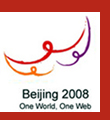Refereed Papers
| Browsers and User Interfaces |
Data Mining |
Industrial Practice and Experience |
| Internet Monetization |
Mobility |
Performance and Scalability |
Rich Media |
Search |
| Security and Privacy |
Semantic / Data Web |
Social Networks and Web 2.0 |
| Technology for Developing Regions |
Web Engineering |
WWW in China |
XML and Web Data |
Developers Track |
Panels |
Posters |
Tutorials |
Workshops
Web Engineering
The World Wide Web offers a global platform for an increasing number of applications that have a major impact on business as well as everyday life. These applications come from a diversity of domains, including e.g. supply chain management, online office tools, social networks, as well as a number of fields often simply called e-Business or Web 2.0. The elements that constitute these solutions seem to be linked with many different aspects and disciplines. Web applications rely upon the existence of a whole range of infrastructures, technologies, and tools. Furthermore, they must allow for aesthetical, psychological, and social aspects to deliver solutions that fit into the ubiquitous ecosystem of the Web.
With the growing number of fields and business-critical tasks to be supported comes a vital need for systematic approaches to the development process. This stands in contrast to the fact that today, still a vast majority of Web-based solutions are developed in an ad-hoc way. The distinct character of Web-based solutions poses requirements to the development process that forces a multidisciplinary approach, including fields like Software Engineering, HCI, Databases, Information Sciences, Distributed Systems, etc. -- As research discipline, Web Engineering focuses on systematic, disciplined and quantifiable approaches towards successful development, execution, and evolution of high-quality, ubiquitously usable Web-based solutions.
The Web Engineering track aims to promote research and scientific exchange related to Web Engineering. It covers processes, principles, methodologies, systems design, architectures and life cycle management of Web-based systems and applications. In addition, case studies of innovative applications and scenarios that are meeting today's fast moving requirements as well as best practices showing successful employment of Web Engineering techniques and principles are also welcome.
The topics of interest include, but are not restricted to:
- Web application development processes and methodologies
- Design models and methods
- OO Web development and component-based Web Engineering
- Innovative approaches in Web 2.0 and Semantic Web applications, AJAX and E4X applications, and other new developments
- Federated and cross-organizational Web applications
- Web Services
- Web Services-based applications and architectures
- Web architectures and application frameworks
- Web 2.0 and social-driven development
- Model-driven Web application development
- Reuse and integration
- Service discovery and choreography
- Web design patterns and pattern mining
- Web content management
- Adaptive and personalized Web applications
- Web quality and metrics for Web applications
- Web usability and accessibility
- Testing and evaluation of Web systems and applications
- Deployment of Web applications
- Performance modeling, monitoring and evaluation
- Web project management
- Mobile Web application development and Device-independent Web delivery
- Domain-specific approaches for Web-based applications and solutions
- Web-based Workflows and collaborative Web Applications
- Case studies, best practices and experiments reports for (E*-)application development
Papers discussing relationships and interactions relating Web development with other disciplines are also invited.
Paper formatting requirements will be provided on the submissions page.
-
Track Chairs:
Martin Gaedke (Chemnitz University of Technology, Germany)
Hong Mei (Peking University, China) -
Program Committee:
Angela Goh (Nanyang Technological University)
Arthur Ryman (IBM)
Athula Ginige (University of Western Sydney)
Atif Memon (University of Maryland)
Bebo White (Stanford Linear Accelerator Center, SLAC)
Carolyn Watters (Dalhousie University)
Chris Brooks (University of San Francisco)
Daniel Schwabe (Dept. of Informatics, PUC-Rio)
David Lowe (University of Technology, Sydney)
Dragan Gasevic (Athabasca University)
Emilia Mendes (The University of Auckland)
Fabio Casati (University of Trento)
Fabio Vitali (University of Bologna)
Fernanda Lima (Universidade Catolica de Brasilia)
Geert-Jan Houben (Vrije Universiteit Brussel)
Greg Badros (University of Washington)
Gustavo Rossi (LIFIA-F. Informatica. UNLP)
Jaime Gomez (Universidad de Alicante)
Judith Bishop (University of Pretoria)
Katsumi Tanaka (Kyoto University)
Kenneth Anderson (University of Colorado)
Klaus-Dieter Schewe (Massey University)
Luciano Baresi (DEI - Politecnico di Milano)
Luis Olsina (Universidad Nacional de La Pampa)
Marco Brambilla Politecnico di Milano
Maria Bielikova (Slovak University of Technology in Bratislava)
Michael Grossniklaus (ETH Zurich)
Nora Koch (Ludwig-Maximilians-Universitaet Muenchen)
Olga De Troyer (Vrije Universiteit Brussel)
Oscar Diaz (University of the Basque Country)
Oscar Pastor Lopez (Valencia)
Paul Dantzig (IBM T.J. Watson Research Center)
S.C. Cheung (The Hong Kong University of Science and Technology)
San Murugesan (Southern Cross University)
Takehiro Tokuda (Tokyo Institute of Technology)
Vassilis Christophides (FORTH, Crete)
Wieland Schwinger (Johannes Kepler University Linz)
Wolfgang Nejdl (University of Hannover)
Woojong Suh (College of Business Administration, Inha University)
Xiaofang Zhou (University of Queensland)
Yanbo Han (Shandong University of Science and Technology)
Yogesh Deshpande (University of Western Sydney)


.jpg)











